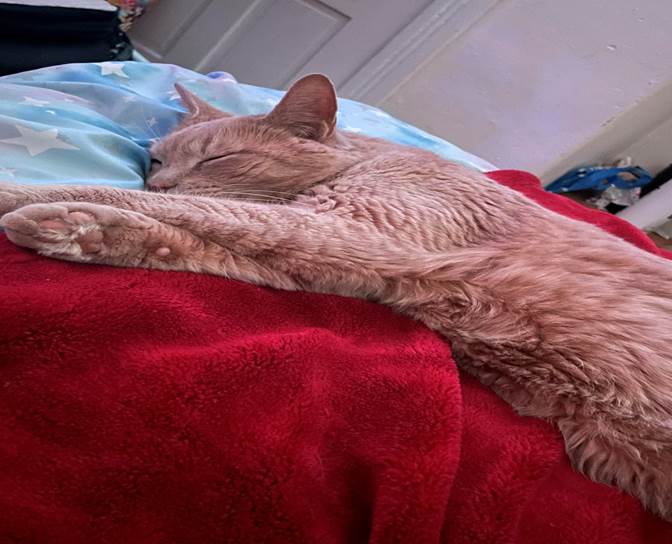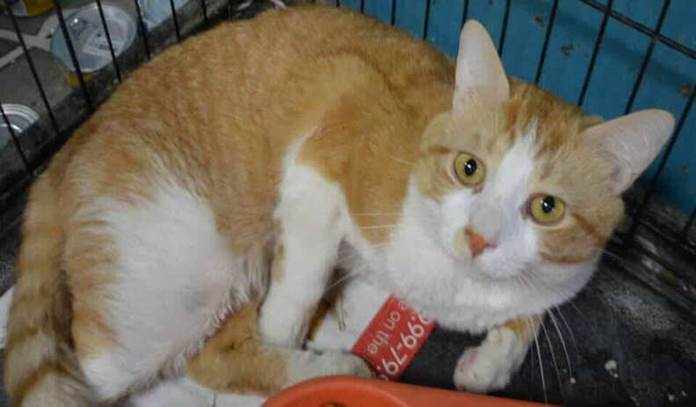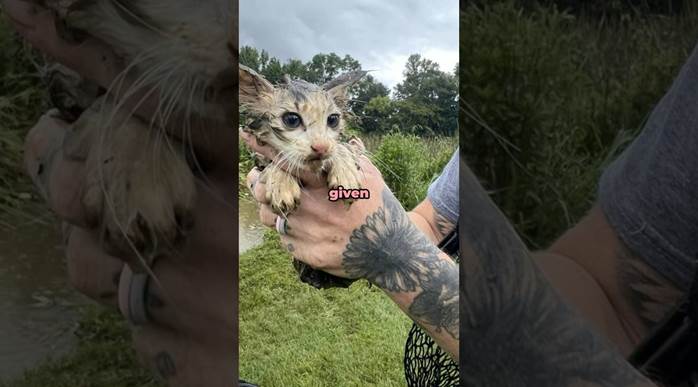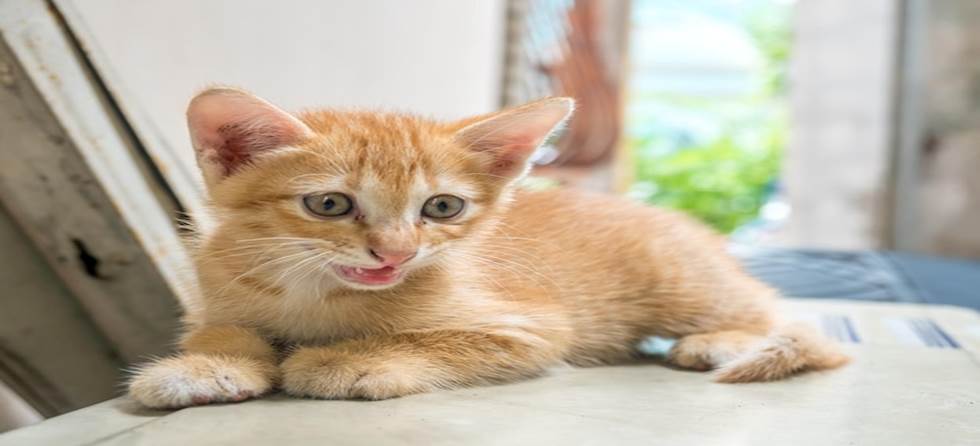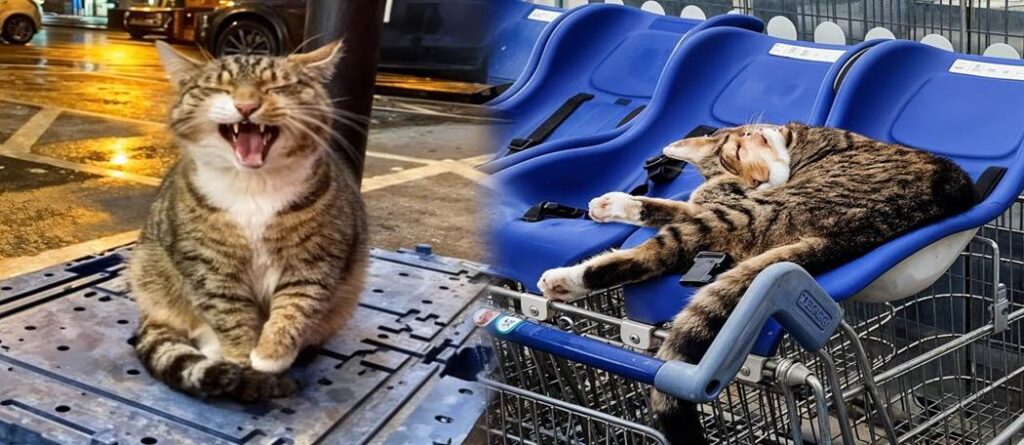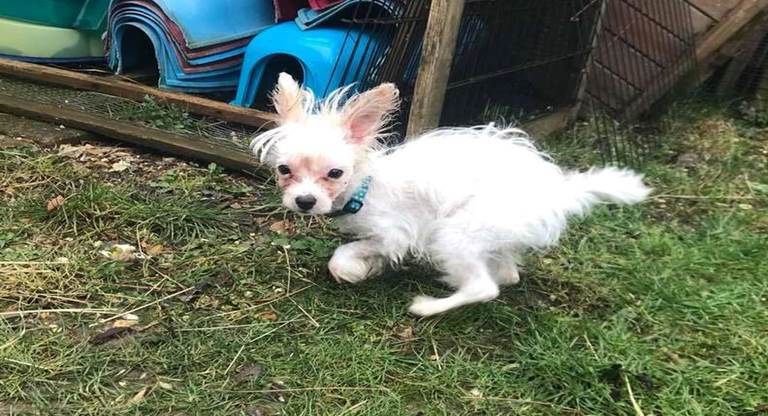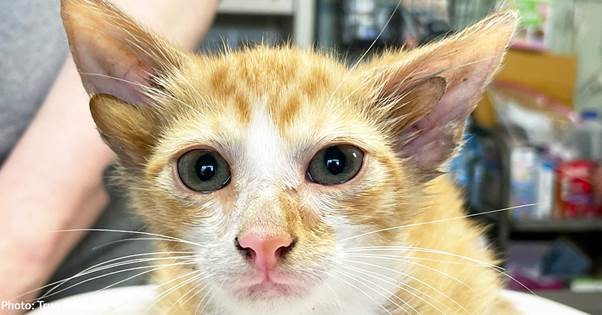Family Ties Pantry Doors Shut To Keep Cat Out, Then Discovers She’s Houdini
The Thompson kitchen was, by all accounts, a peaceful, sunny, suburban space. It had everything: a sprawling butcher block island, enormous windows overlooking a perfect lawn, and a crippling, persistent element of chaos named Mavis. Mavis was a gorgeous tabby cat—a sleek, silver-striped whirlwind of fluff and highly organized mischief. She wasn’t content merely occupying the Thompson home; she treated it like a complex, three-dimensional puzzle designed for her entertainment, and the grand challenge, the Mount Everest of Mavis’s world, was the Pantry. For Jane and Tom Thompson, the pantry was a refuge of organization, a place where the chaos of daily life yielded to neatly stacked cans and cereal boxes. For Mavis, it was Narnia, a glorious wonderland filled with crunchable delights like rice crackers, dried pasta, and, most importantly, the mysterious, alluring, and highly restricted world of the family’s premium cat treats, stored right behind the bags of flour. The problem wasn’t subtle. If the pantry door was left ajar for even three seconds, Mavis would initiate a high-speed dash, a gray-and-silver blur aimed directly at the bottom shelf. The result was inevitably a scene of domesticated disaster: torn bags of shredded cheese left to spoil, a cascade of dried kidney beans across the linoleum, or, on one memorable occasion, a twenty-pound bag of basmati rice that looked as if it had exploded on the floor. “We just have to be vigilant,” Tom insisted, practicing a sort of lightning-fast pivot and door-slam move that he had named “The Mavis Maneuver.” Vigilance, however, was no match for Mavis’s patience. She would lie in wait, sometimes for hours, a furry, low-slung missile pretending to nap by the island, only to launch herself the moment an arm or a shopping bag momentarily blocked the view. The Thompson family meetings—usually reserved for discussions about homework and vacation plans—soon revolved entirely around pantry security. They tried simple solutions first. They lined up heavy cookbooks in front of the door, but Mavis just treated them like an obstacle course, squeezing through the smallest gaps. They tried stern words and spray bottles, but Mavis simply saw this as part of the game’s difficulty setting, enjoying the thrill of the high-stakes raid. “We need to fortify,” Jane declared one Tuesday morning, staring at a crime scene involving corn flakes and spilled spice jars. “She’s escalating. We need a proper lock.” Mark, channeling his inner security engineer, bought and installed the most robust, child-proof, magnetic cabinet lock set he could find. It was a sophisticated system, relying on internal magnets and a pressure-release button that required simultaneous pushing and pulling—a task designed to stump toddlers and, presumably, cats. He installed the latch high up on the pantry door, far above Mavis’s natural jumping height. He tested it three times, pulling and rattling the door until the structure groaned. The door remained sealed. “There,” Tom said, wiping his hands and standing back with a triumphant, if weary, smirk. He looked down at Mavis, who was sitting patiently two feet away, observing the new hardware with unnerving focus. “Game over, furry menace. You can’t reach it, you can’t open it, and we, the superior species, have won.” Mavis blinked slowly, a look of profound pity for his human naivety settling over her face. That night, for the first time in months, the Thompsons went to bed secure in the knowledge that their dried goods were safe. They drifted off to sleep to the rhythmic, comforting sound of Mavis scratching quietly at the newly locked door. The next morning, Jane came downstairs first. She was making coffee when she noticed the faint, sweet smell of cinnamon and oats. She walked to the pantry. The sight made her gasp, a sound that immediately brought Tom running from the bedroom. The pantry door was wide open. And inside, sitting amid a catastrophic landscape of scattered oatmeal packets and a few happy crumbs of a recently demolished box of vanilla wafers, was Mavis, looking like the victor of a highly successful siege. “No. No, no, no,” Tom muttered, rushing forward. “The latch! I locked the latch!” He grabbed the pantry doors and pulled them shut. He looked at the latch. It was perfectly, securely, locked. The two white panels were fused tight, exactly as he had left them. The mystery was instantly elevated from a simple behavioral problem to a genuine paranormal event. Had the house been burgled? Had a clever raccoon picked the lock? They spent the day scrutinizing the door for signs of forced entry, mouse activity, or structural damage. Nothing. The door was fine, the lock was fine, and the pantry was in ruins. The pattern repeated itself for three nights. Every morning, the door was open, the lock was secured, and Mavis was invariably found enjoying the fruits of her invisible labor. Baffled and utterly defeated, Tom decided to install a camera. He positioned a small, motion-activated pet cam on a shelf in the living room, angled directly at the pantry door. That night, they retired early, pretending to sleep, while the camera silently recorded. The footage, reviewed the next morning, was breathtaking. At 3:17 a.m., Mavis approached the door. She didn’t jump or paw at the handle. She went low. She studied the new magnetic latch for a long moment, confirming its impregnable location. Then, she began her true, masterful work. Mavis focused her attention on the vertical seam between the two wooden doors. There was the faintest crack there, the natural tolerance of the cabinetmaker’s art, barely a millimeter wide. She inserted a single, perfectly aimed front claw into the crack. Then, using the power of her strong, muscled forearm, she began to pull the door toward her, using the crack as leverage. The door creaked, resisting the motion because the magnetic lock was attached to the other side. But Mavis wasn’t trying to open it fully. She was trying to deform the door just enough. As the wood bent infinitesimally under the extreme lateral pressure,
Family Ties Pantry Doors Shut To Keep Cat Out, Then Discovers She’s Houdini Read More »


